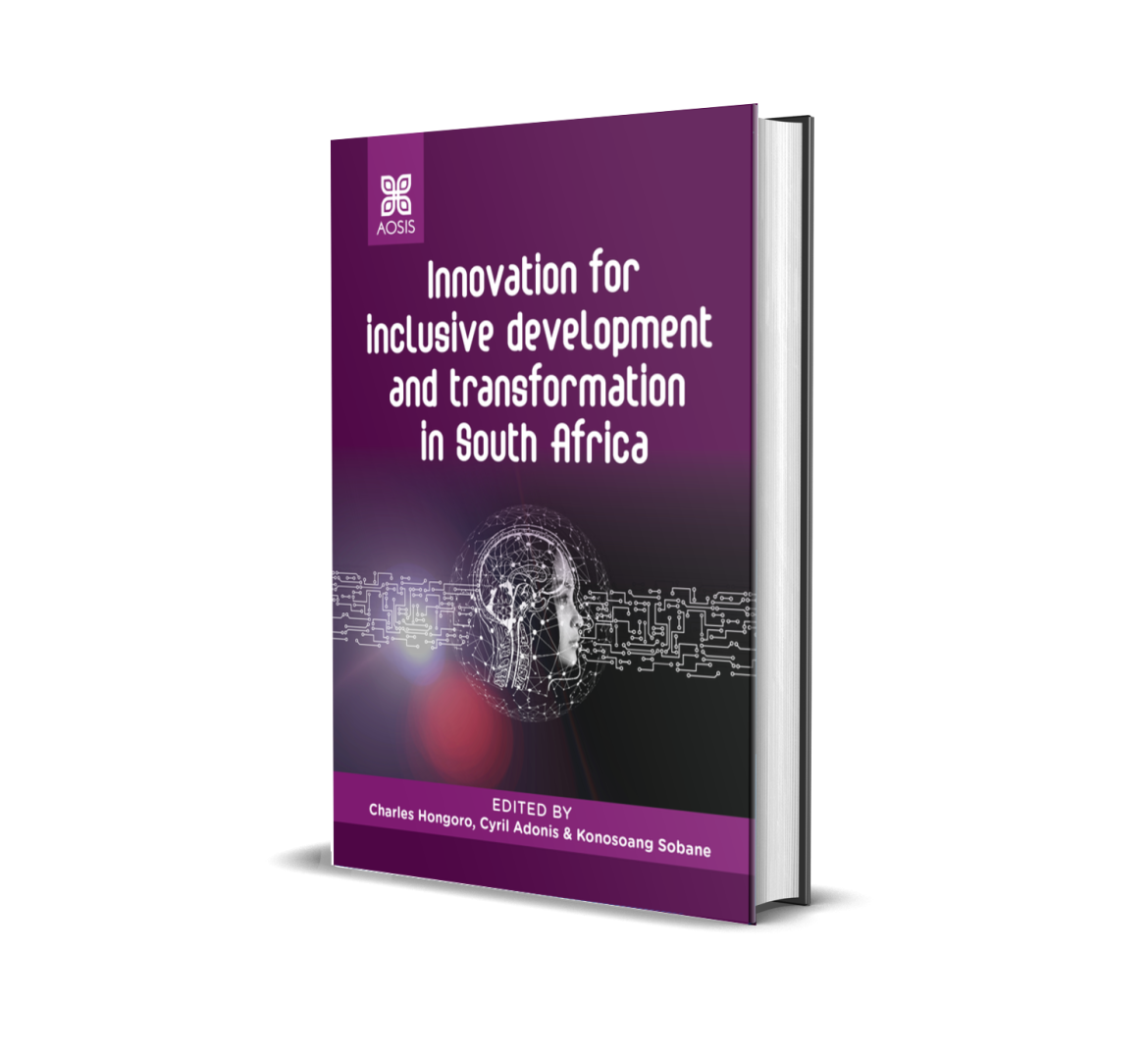Innovation for inclusive development and transformation in South Africa is an open access book published by AOSIS Scholarly Books.
Science, technology and innovation (STI) are generally accepted as major drivers of growth and can help address poverty and directly improve the well-being of different groups in society. However, under certain circumstances, STI can reinforce social exclusion and inequalities. This book explores discourses around directionality and the importance of Innovation for Inclusive Development (IID) in addressing policy questions that explore the relationship between IID with inequalities in income and opportunities. It seeks to unpack the concept of IID and what it means in a country such as South Africa – a country characterised by endemic poverty, deepening inequality, and high levels of unemployment. The book is largely original and based on a critique of existing literature to expose specific issues or bolster specific arguments about the role of IID in equitable and inclusive development. This book has been written by various scholars who understand the various notions of IID and how it can possibly be applied and the relevance of such knowledge for policy, programmes and practice.
Copyright (c) 2022 Charles Hongoro, Cyril Adonis, Konosoang Sobane (Volume editors)
Science, technology and innovation (STI) are generally accepted as major growth drivers and can help address poverty and directly improve the well-being of different social groups. However, under certain circumstances, STIs can reinforce social exclusion and inequalities. This book examines the relationship between IID and income inequality and opportunity by exploring discourses around directionality and innovation for inclusive development (IID). It seeks to unpack the concept of IID and what it means in a country such as South Africa – a country characterised by endemic poverty, deepening inequality, and high unemployment rates. The book is original and based on a critique of existing literature to expose specific issues or bolster particular arguments about the role of IID in equitable and inclusive development. Various scholars have written this book based on their knowledge of multiple notions of IID, how it can be applied, and how such knowledge can benefit policy, programmes, and practices. Unlike other books, this one is intended for a much wider audience and to be used in the field of innovation for inclusive development.The book contributes to understanding IID and its application in low- and middle-income countries. It uses specific examples to demonstrate technical and contextual factors that affect its impact. Most studies on IID have been done in developed countries, and this book intends to fill this knowledge gap and raise an understanding of the enablers and constraints of its application.This book is based on a series of chapters authored based on a systematic review of relevant literature, empirical work on local innovations, and a series of policy dialogues on IID, which the Human Sciences Research Council (HSRC) conducted in the last ten years.

